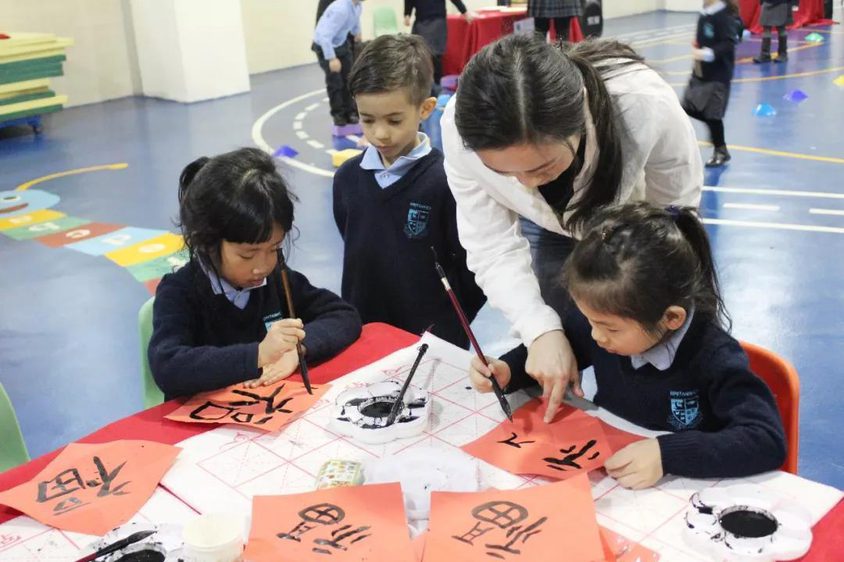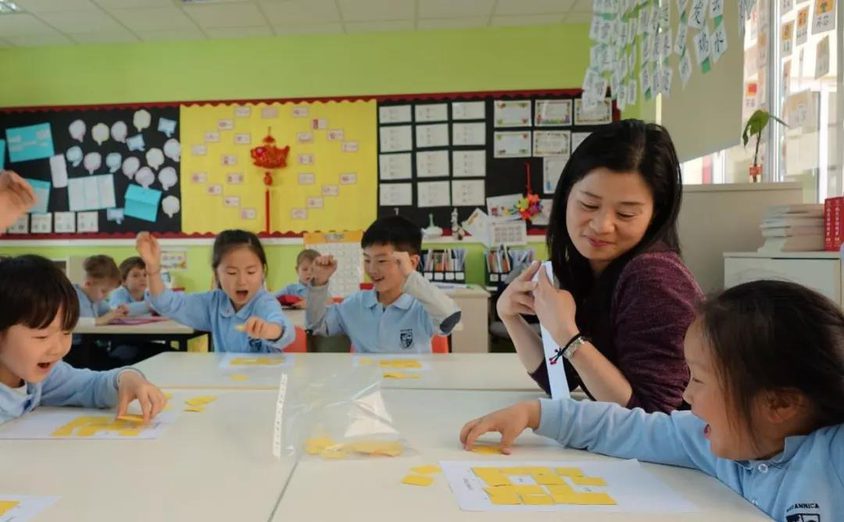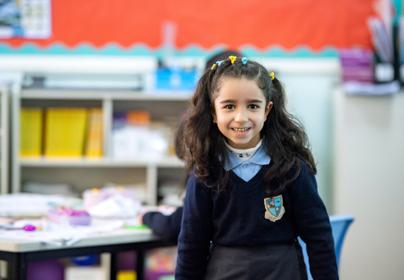The educational landscape in Shanghai is shifting. More than ever Chinese parents want their child to have bilingual fluency in both English and their native language. The challenge to such parents has always historically been making the choice between a bilingual school, which does not cover the full English curriculum and is often not taught by fully trained, experienced and skilled western teachers or the decision to forfeit their child’s Chinese learning and opt for a pure international school setting.
It remains obvious though that international schools will always provide the best route for parents wanting their child to attend a western university, whether this is in the UK, the US or elsewhere. It has therefore until now been a no-win situation for parents wanting a truly international school setting with a guarantee of western university entrance alongside the development of Chinese language fluency at the native level. Creative schools such as Britannica International School, situated in the residential district of Gubei and close to The Former French Concession, have come up with an alternative programme which finally gives parents the choice they are seeking.

Britannica International School offers a full English curriculum, taught by experienced and highly trained UK teachers. It also provides specialist Chinese native language teaching from age 4 to 18. Native Chinese speaking students are offered a programme that enables them to receive 7 lessons of language teaching each week, using text and materials similar to those used in the local Chinese Schools, but taught in an engaging western style that enables all native Chinese students to maintain a high level of Chinese language acquisition. Lessons are taught by fully qualified Mandarin teachers who have been trained to teach the language at the native level. Class sizes are small, enabling each child to fully access the material and achieve their language potential. Facilities at Britannica are on a par with other premier international schools in the city, along with the benefits of a downtown address.

Elaine Fu, Director of Mandarin at Britannica, talks about the benefits to Chinese students learning at Britannica and how the school especially provides for the needs of the native language learner.

Q&A
Elaine,
It’s nice to have you here sharing your thoughts, experience and your insight into working at Britannica.
1. Could you please share your own educational background and what led you to work at Britannica and leading the Mandarin programme?
I graduated from East China Normal University with a B.A. in Teaching Chinese as A foreign language. Supported by a joint scholarship provided by New York University and Hanban, I then went to New York and studied in the Steinhardt School of NewYork University, where I completed my M.A. degree in Foreign Language Teaching and gained the teaching certification of New York State. During my time at NYU, I was trained to teach languages using western teaching theories and methods and had the opportunities to observe a good number of K-12 schools. I also completed my student-teaching in a private school in New York City.
When I returned to Shanghai, I joined an established British-style international school in Shanghai and worked as a Mandarin teacher for four years, during which I became familiar with the British education system and gained experience teaching its exam courses.
In 2013 I was invited to join the founding team of Britannica International School to set up and lead the Mandarin programme. Although the school was new and young back then, I was attracted by the reputation of Orbital, the school’s great potential, and the career development opportunity it provided. Now, this is my sixth year at Britannica.
2. What do you think are the biggest differences between teaching Mandarin to native speakers and to non-native speakers?
For non-native learners, our focus is to help them develop the ability to communicate cross-culturally with confidence using Mandarin. Therefore, we apply the Communicative Language Approach to teach non-native speakers at Britannica, using student-centred activities such as role-plays, interviews, public presentations, with the aim to build students’ communication skills and confidence. We also introduce Chinese culture to non-native learners in lessons and through various cultural activities, such as traditional festival celebrations and school trips, to enable them to have a better understanding of Chinese culture and the cultural differences when communicating with Chinese people.
For native speakers, studying Mandarin is more than just learning a language. Research has shown that one’s native language plays an important role in the construction of one’s personal, cultural and social identity. Mother language holds the key to understanding and communicating one’s native culture. In the Native Chinese Programme, we prepare our native Chinese learners with the literary skills needed to access, comprehend and appreciate Chinese literature. We also help them understand the history, philosophy and traditions in their native culture through ancient Chinese poems, classical Chinese literature, tales and stories, plus traditions and customs, in order to help them shape their cultural identity.
3. Can you describe what makes the native language programme unique at Britannica and how this better supports the language development of native learners compared to a typical international school?
At Britannica students with a native Chinese background are grouped together to study the native programme, following a curriculum that is adapted from China’s national curriculum for Chinese Language and Literature to meet the needs of students who are studying in an English speaking school. All native Chinese speaking students from Reception to Year 9 will have seven lessons a week from next academic year onwards (Included in seven lessons there are two optional Mandarin lessons per week, during which they will have the opportunity to study ancient poems, traditional stories and idioms, in addition to the regular Mandarin First Language curriculum, so as to further expand their vocabulary and to develop a deeper understanding of the historical and cultural context of Chinese literature).
4. How do parents find out more about Britannica International School if they want their child to have an international school education but also want them to develop and maintain a high level of Chinese language ability?
Interested parents may contact our school by clicking here to book a school visit and to meet our Mandarin teachers in person.




